Anatomic Planes and Movements
1/26
There's no tags or description
Looks like no tags are added yet.
Name | Mastery | Learn | Test | Matching | Spaced |
|---|
No study sessions yet.
27 Terms
Sagittal Plane
Divides the body into left and right along a horizontal axis
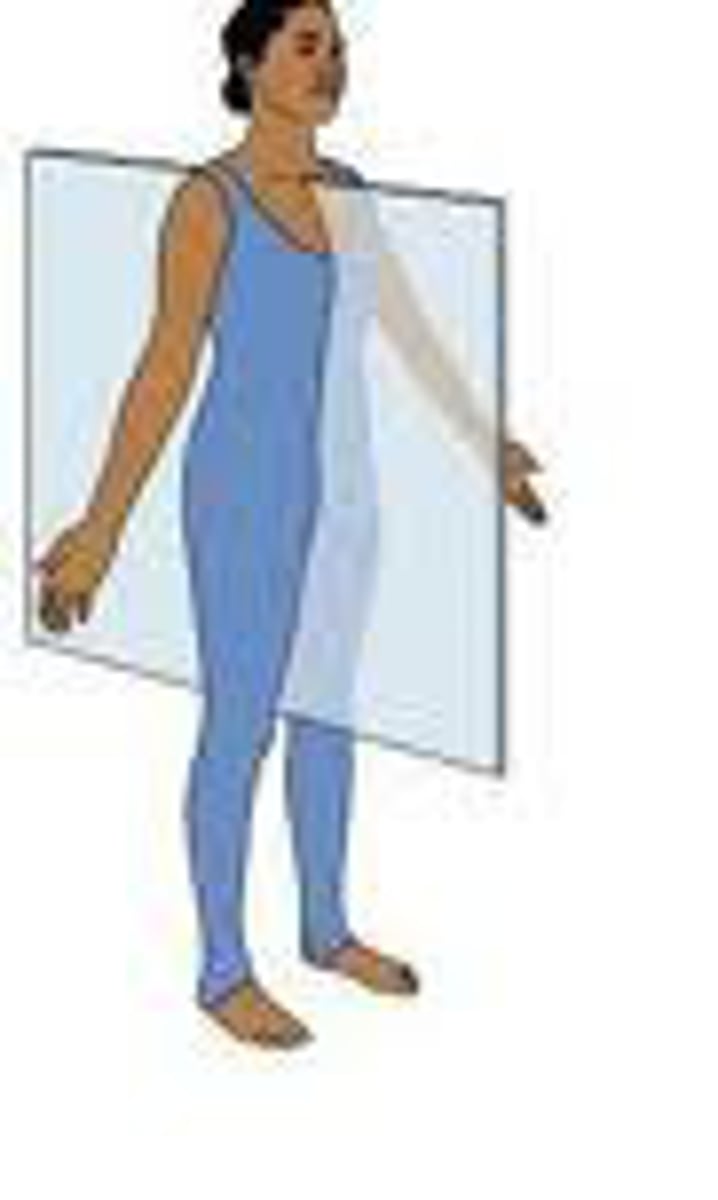
Frontal/Coronal Plane
Divides the body into anterior and posterior along a sagittal axis
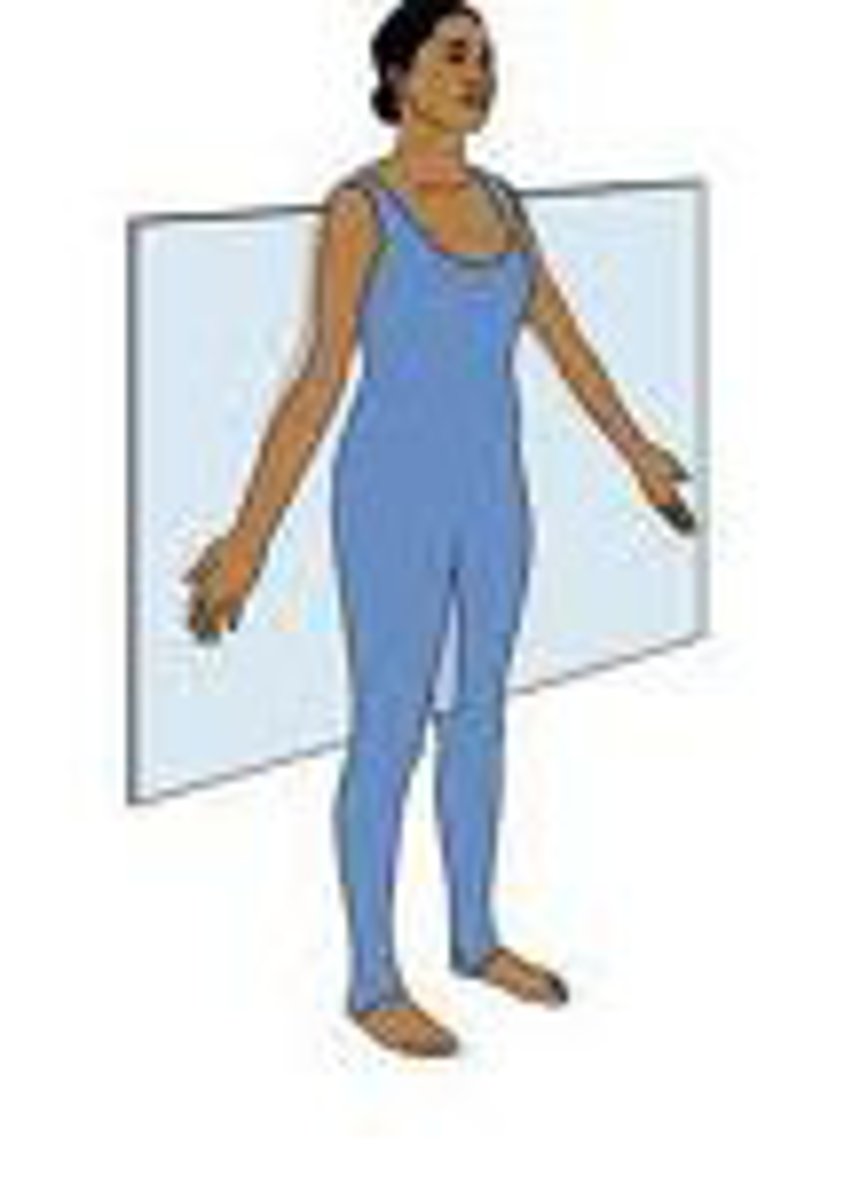
Transverse Plane
Divides the body into superior and inferior along a vertical axis
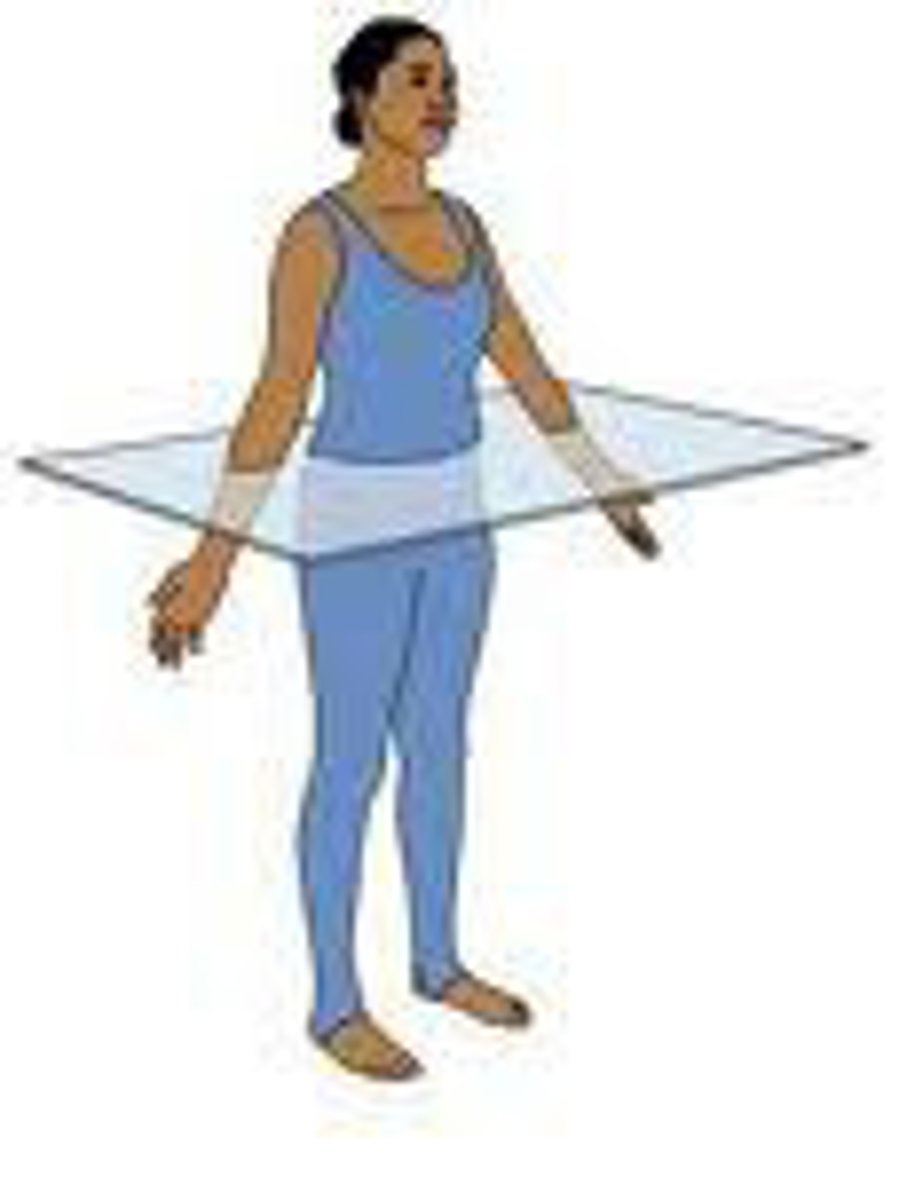
Flexion
Movement in the sagittal plane about a horizontal axis so that the angle at the joint decreases
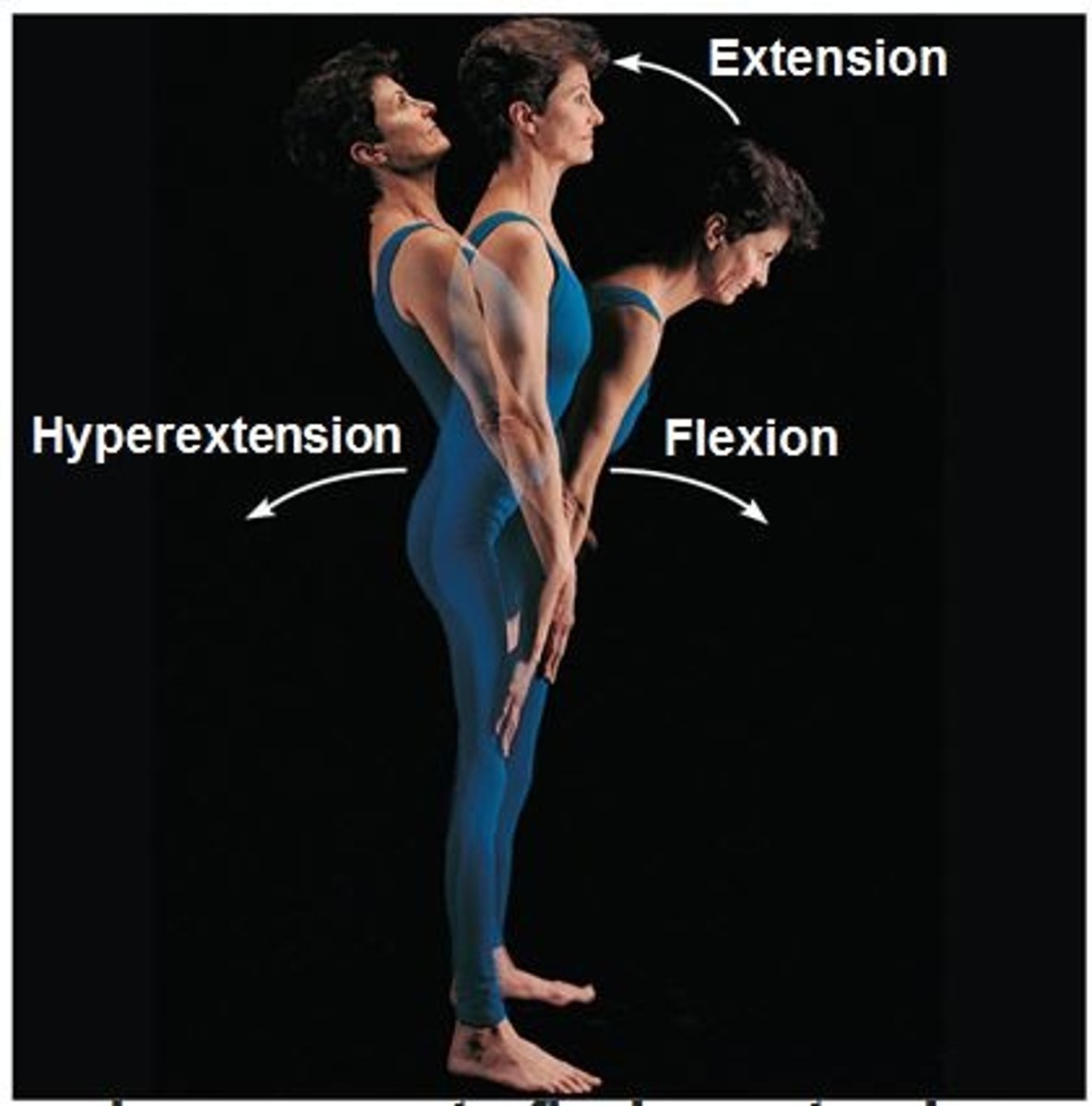
Extension
movement in the sagittal plane about a horizontal axis so that the angle at the joint increases. Return from flexion.
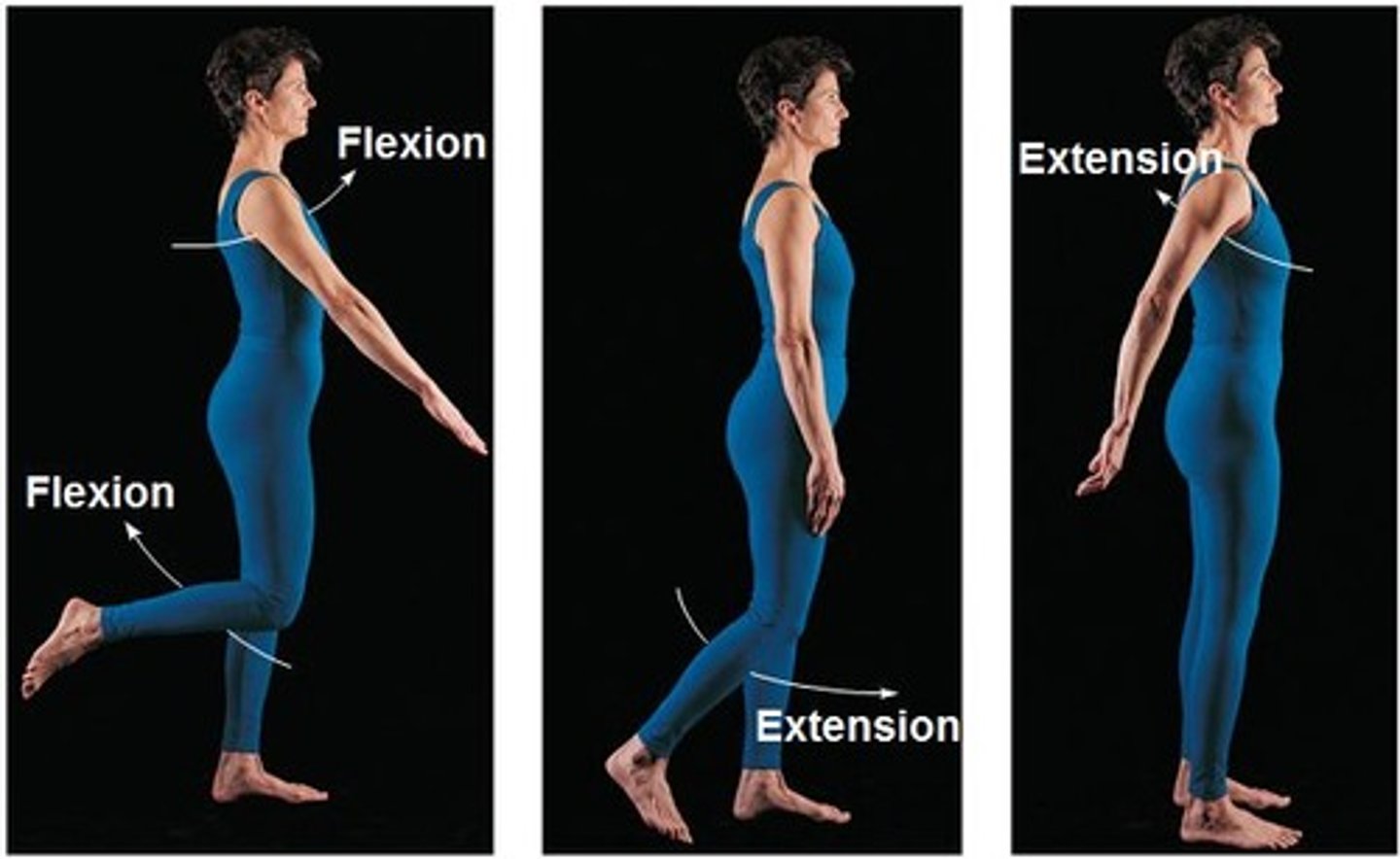
Hyperextension
movement in the sagittal plane about the horizontal axis so that the angle of the joint moves beyond 180 degrees.
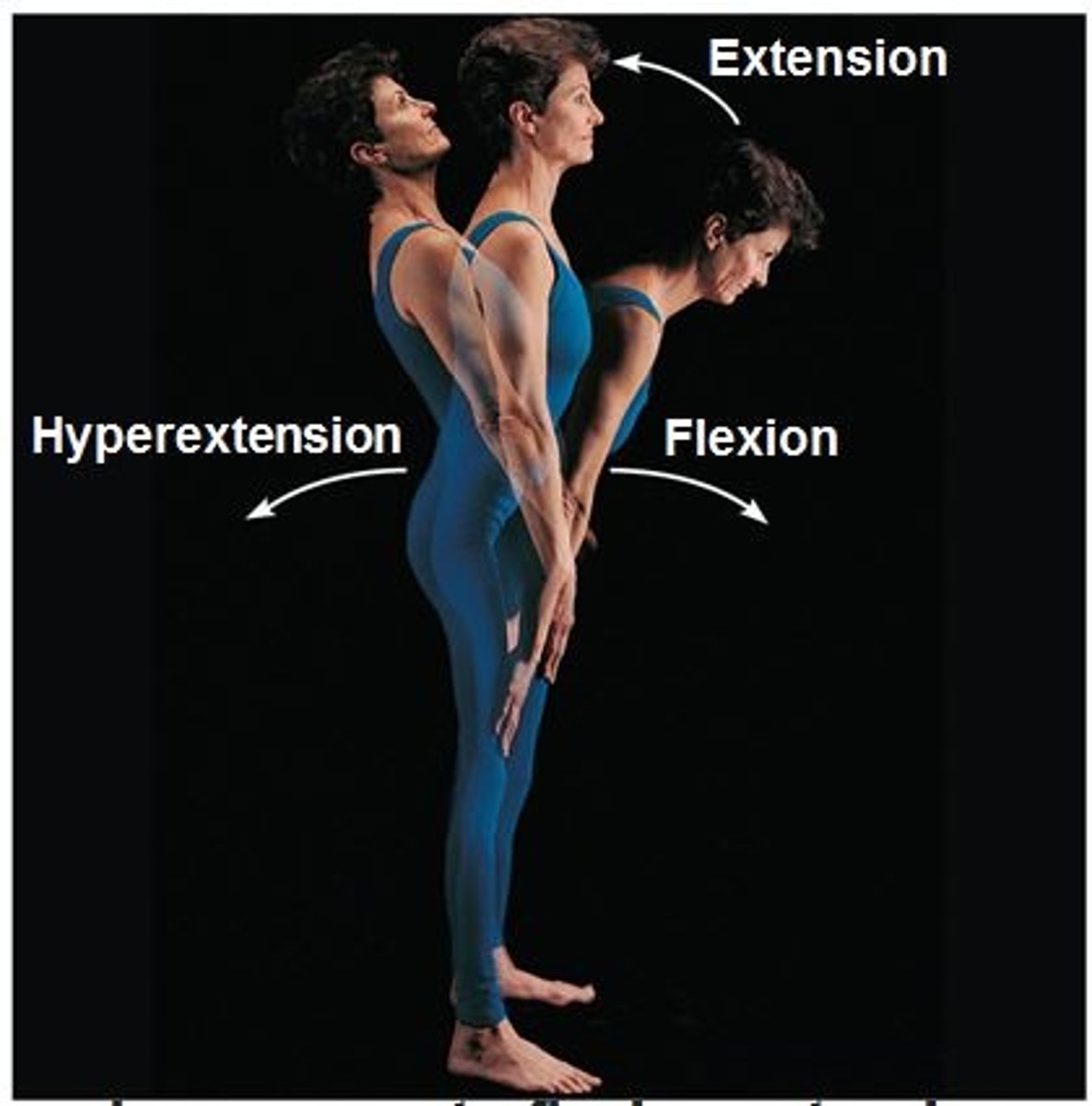
Abduction
Movement in the frontal plane about the sagittal axis so that the limb moves away from the midline of the body
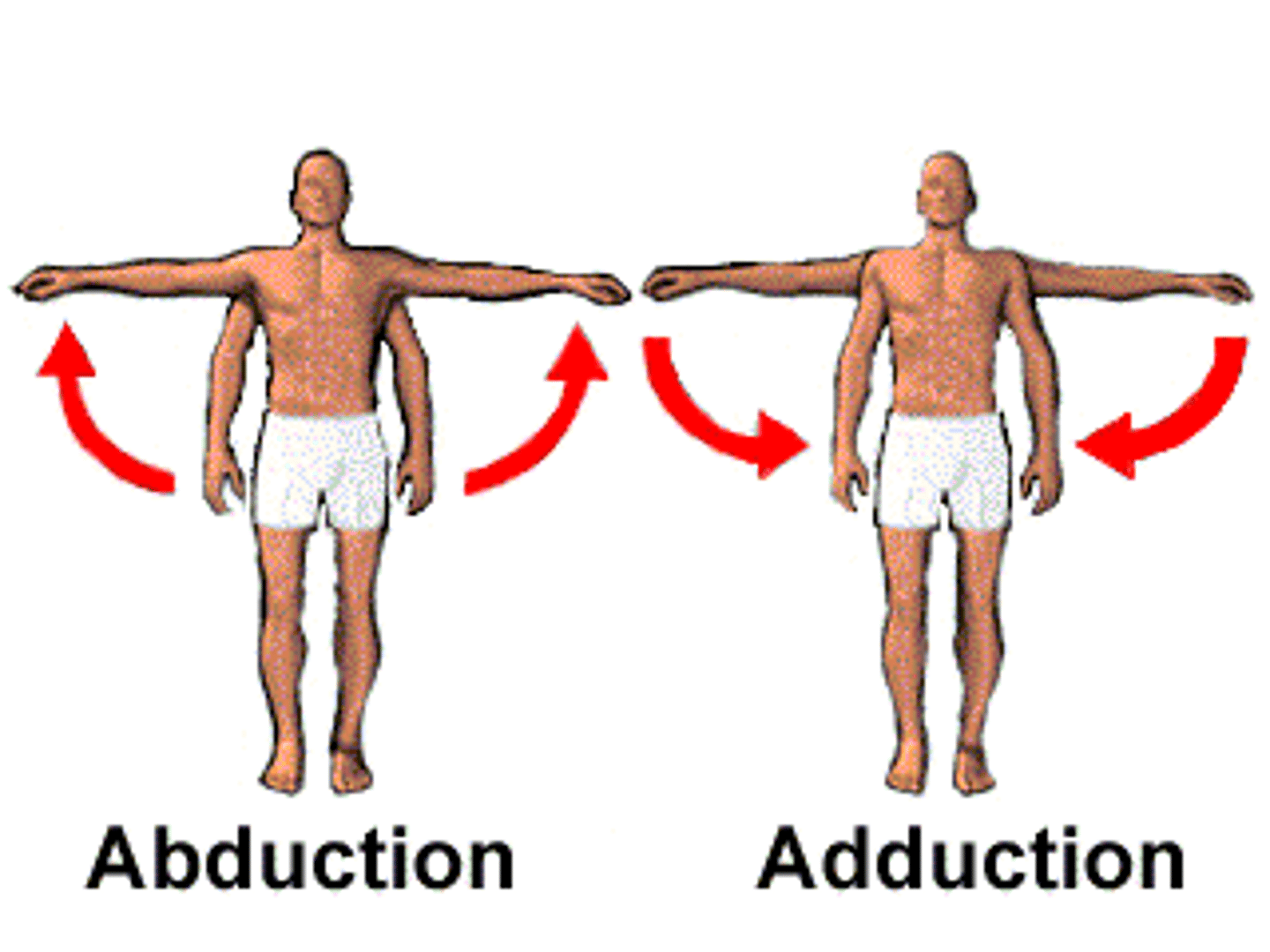
Adduction
Movement in the frontal plane about the sagittal axis so that the limb moves towards the midline of the body. The limb may cross the midline.
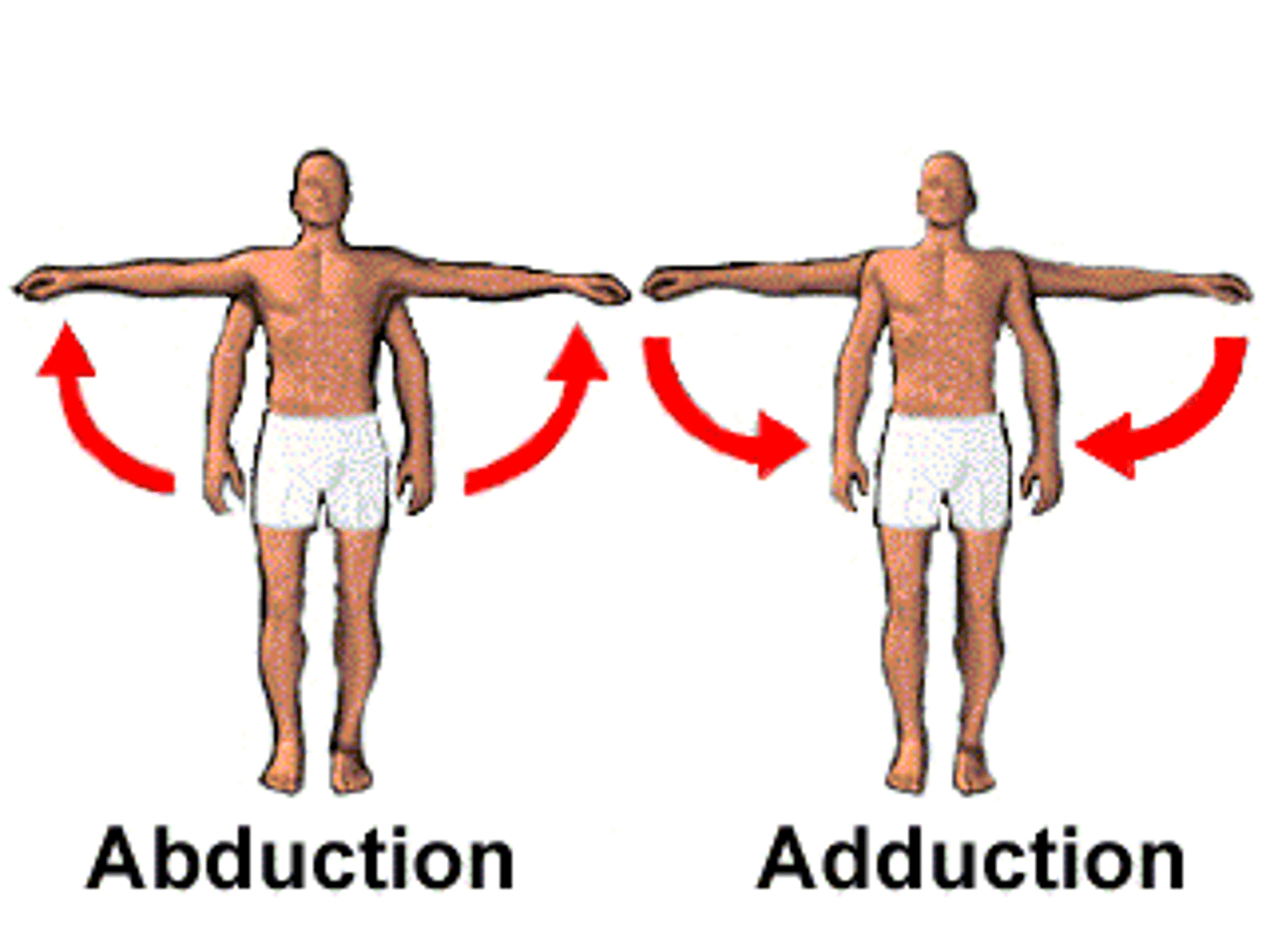
Circumduction
The distal end of the segment describes a cone
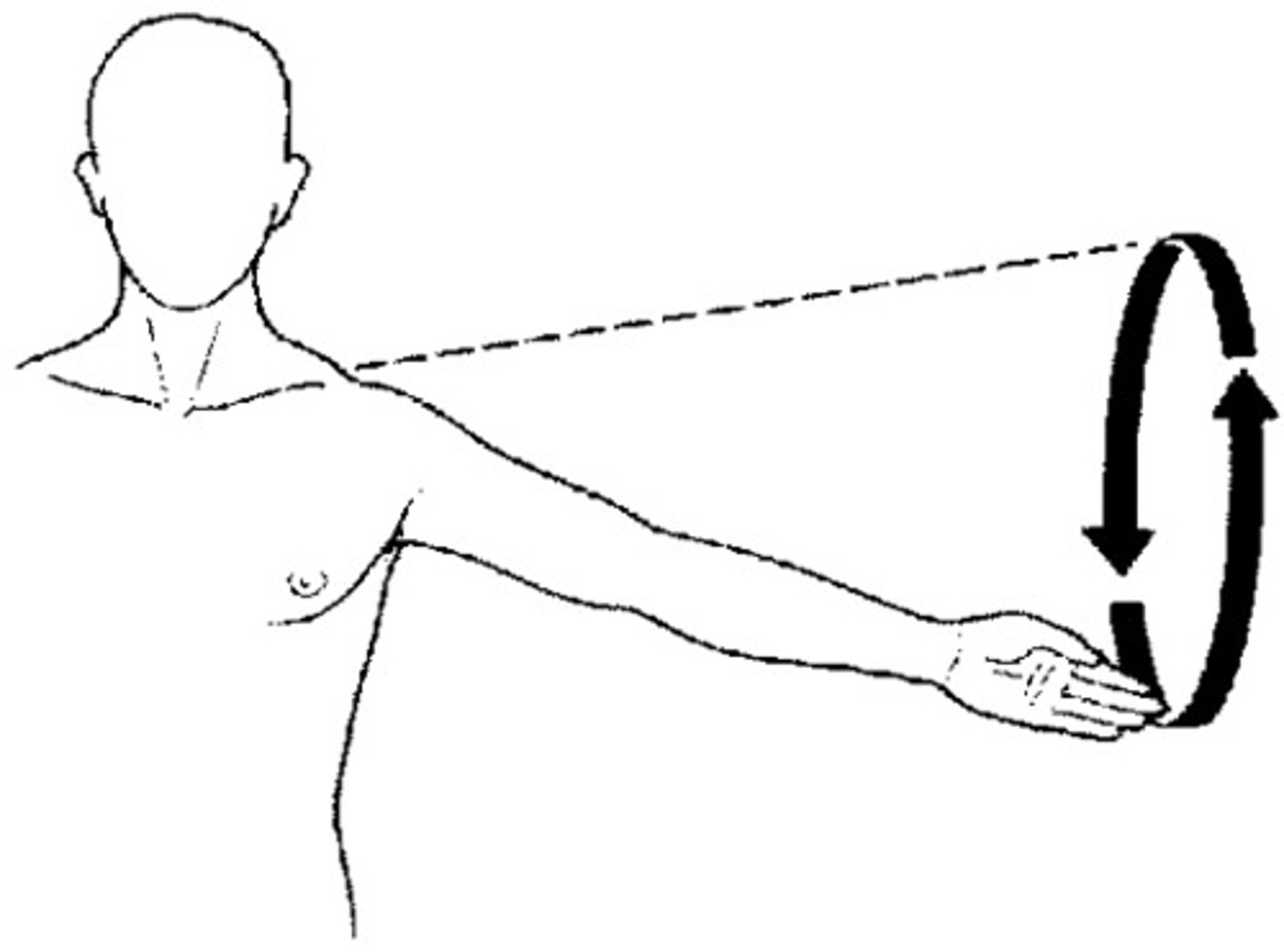
Medial (Inward) Rotation
Movement in the horizontal plane about the vertical axis so that the anterior surface of the limbs turns medially towards the body
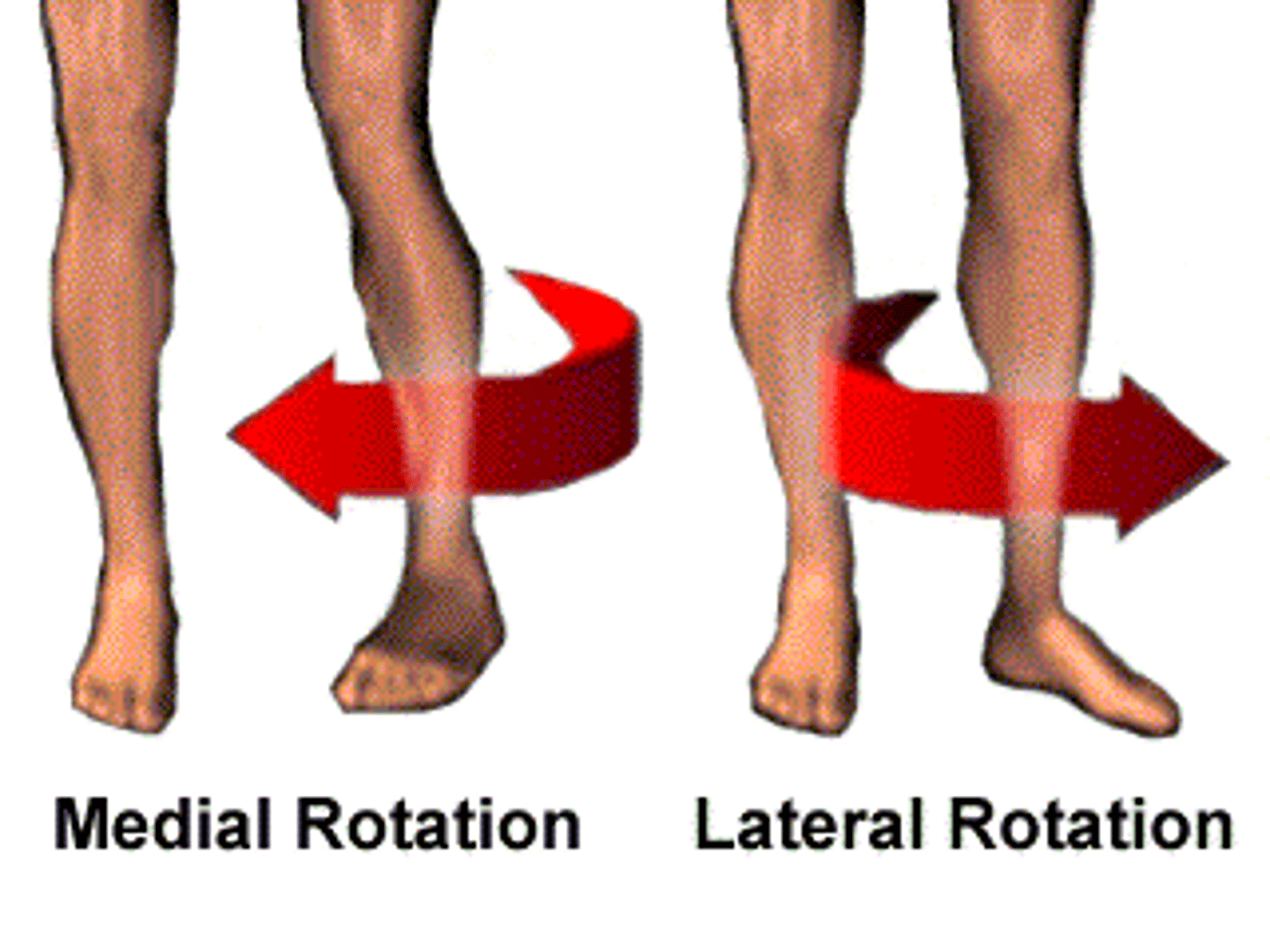
Lateral (Outward) Rotation
Movement in the horizontal plane about the vertical axis so that the anterior surface of the limb turns laterally away from the body
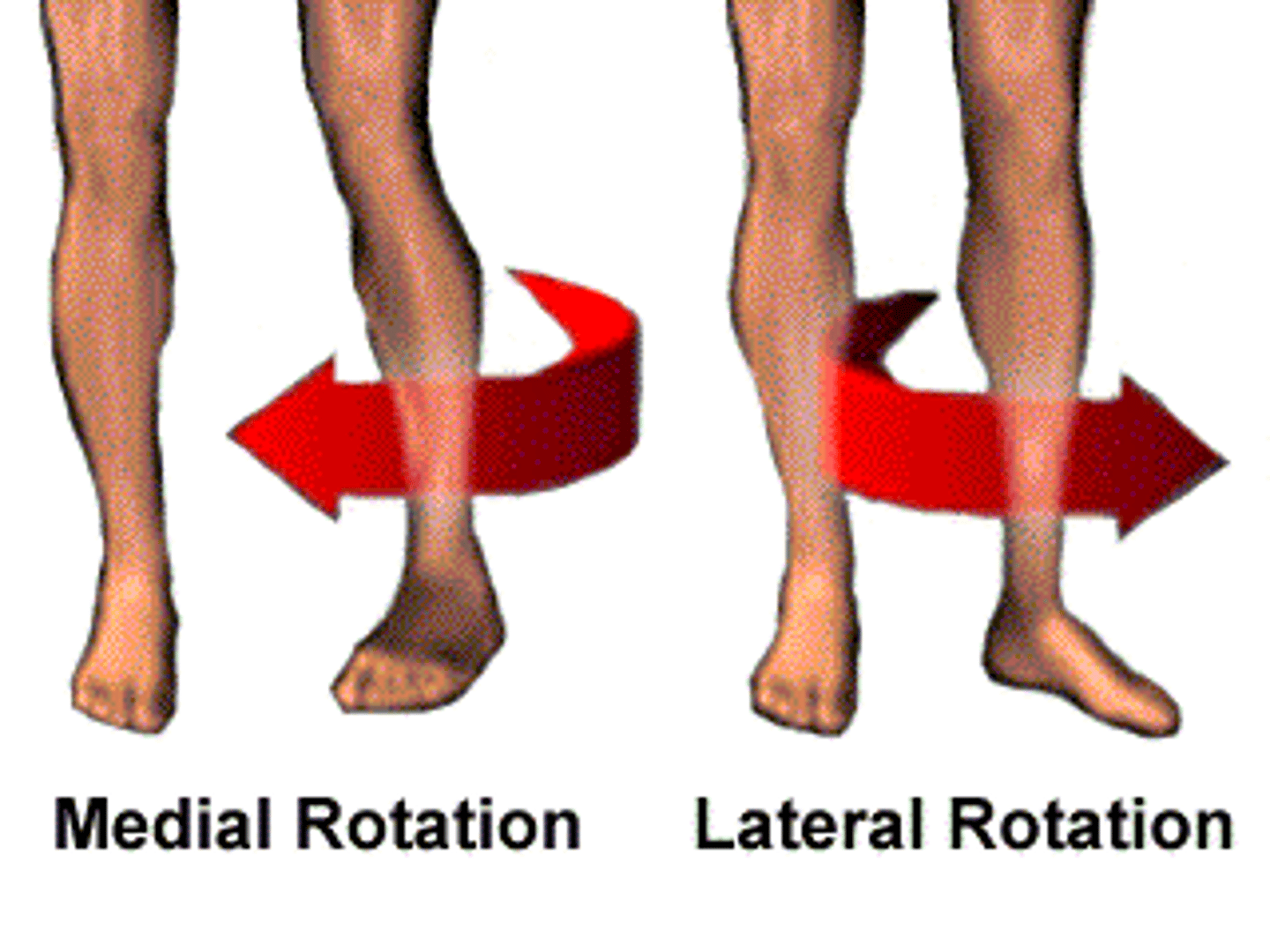
Horizontal Abduction
movement at the horizontal plane about a vertical axis moving away from the midline of the body, typically involving the limbs.
Horizontal Adduction
Movement in the horizontal plane about a vertical axis so there's movement of the 90 degree flexed segment toward the midline of the body. The segment may cross the midline.
Plantar Flexion
Movement in the sagittal plane along a horizontal axis so that the soul of the foot approaches the posterior surface of the tibia. Pointing your toes.
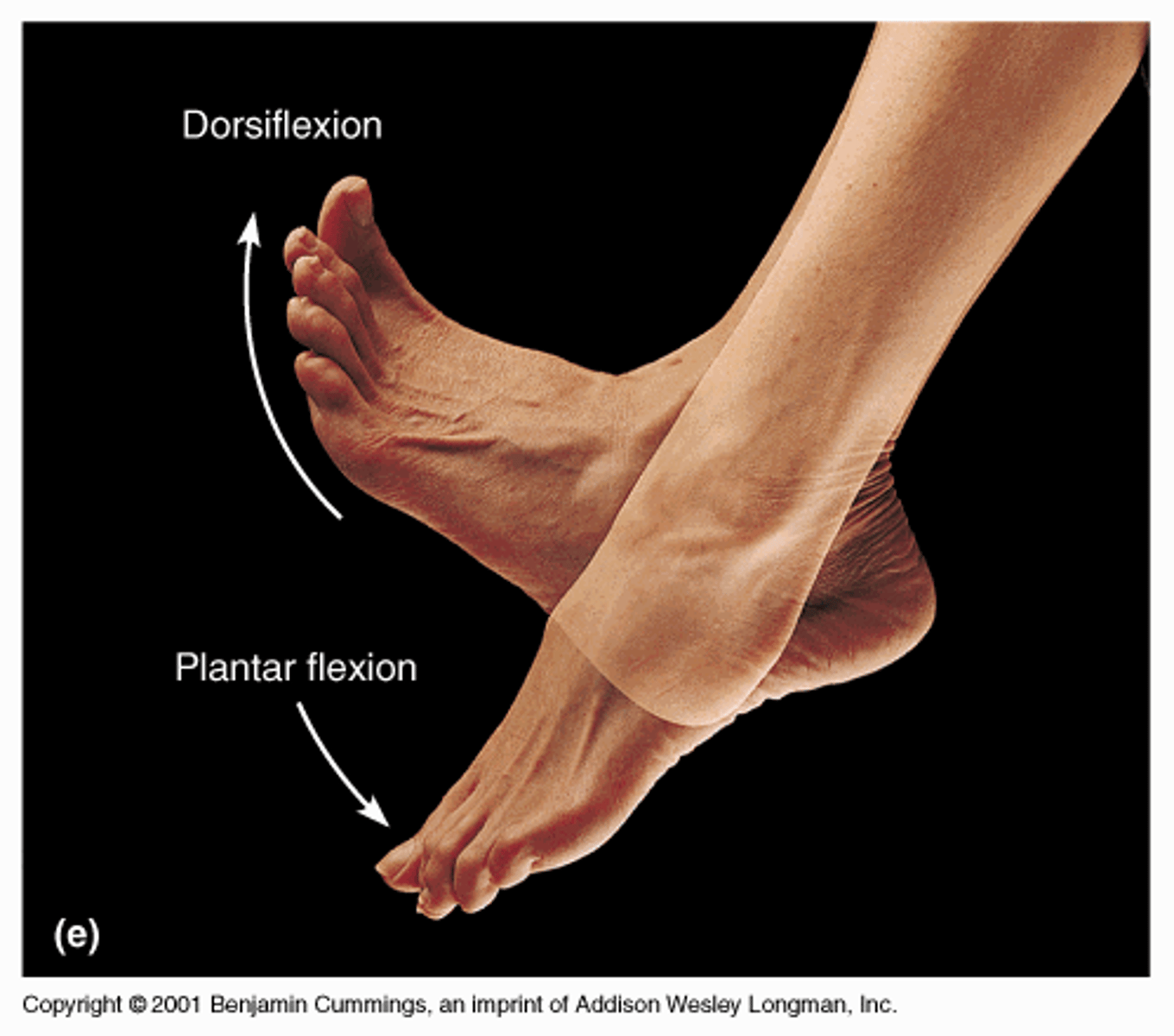
Dorsiflexion
Movement in the sagittal plane along a horizontal axis so that the top of the foot approaches the anterior surface of the tibia
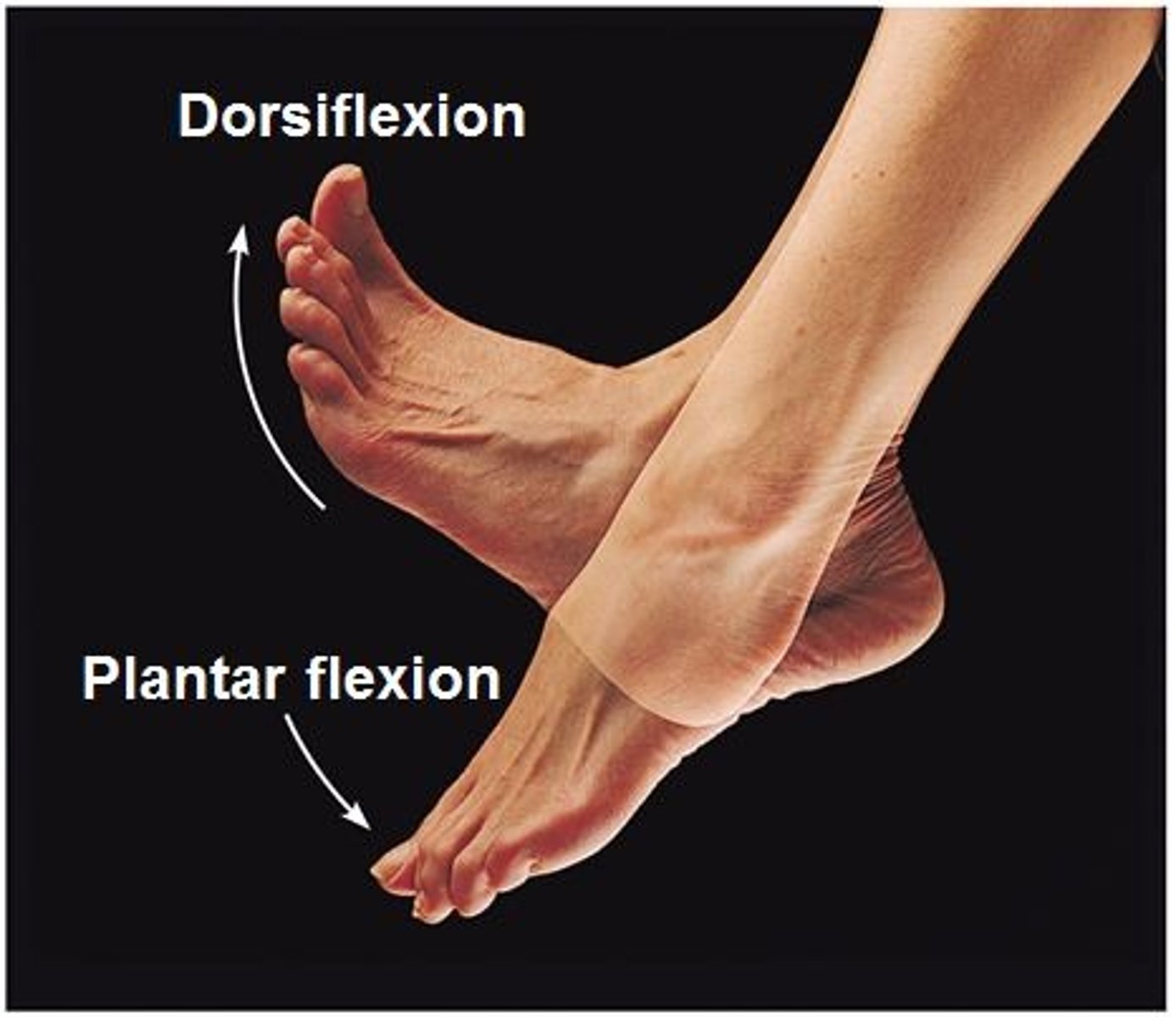
Inversion
Movement of the sole of the foot medially; the medial border of the foot is raised
- This is gliding. There are no planes
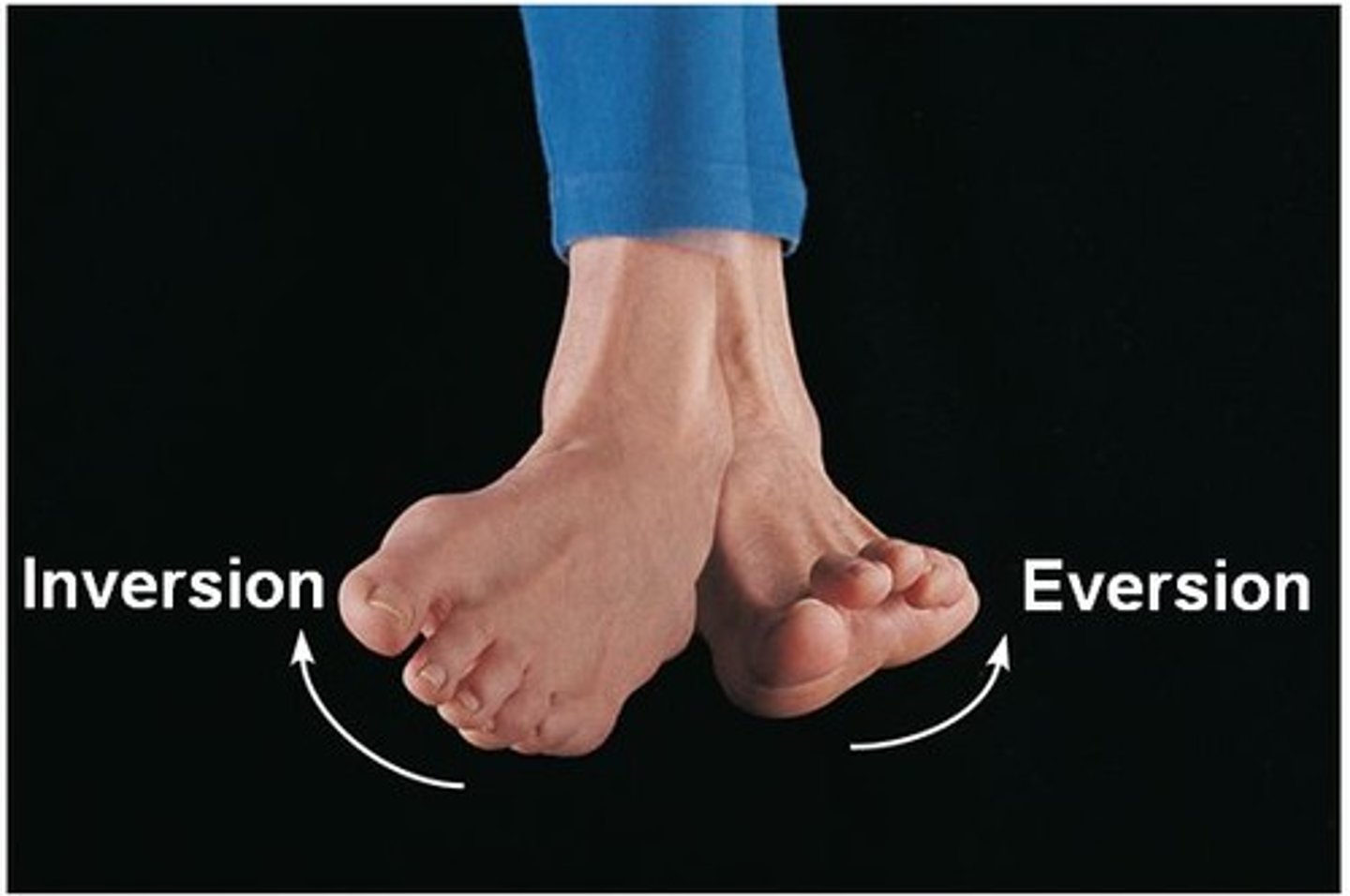
Eversion
Movement of the sole of the foot laterally; the lateral border is raised
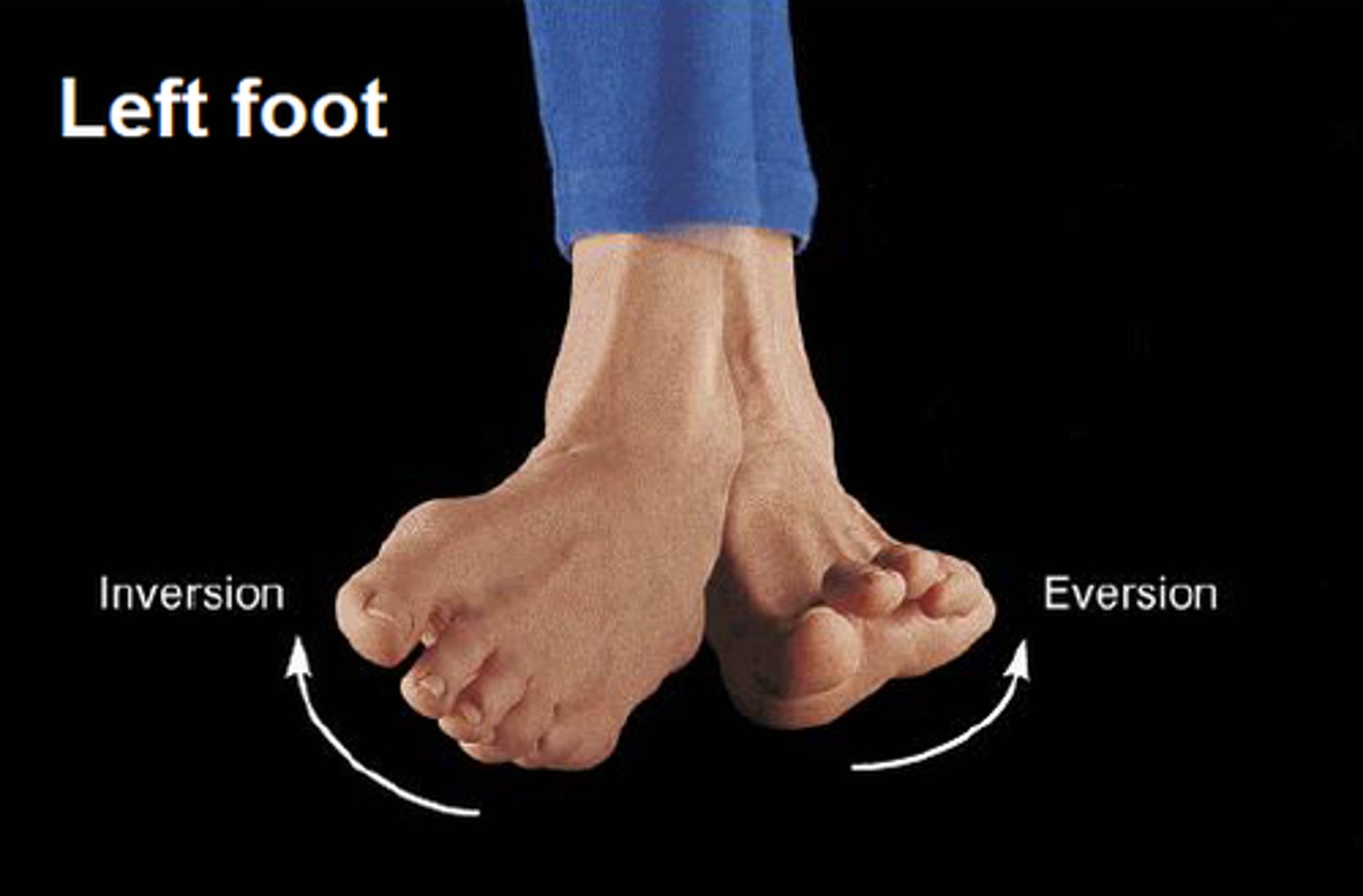
Lateral Flexion
Movement in the frontal plane about a sagittal axis so that there's movement of the head and trunk from left to right.
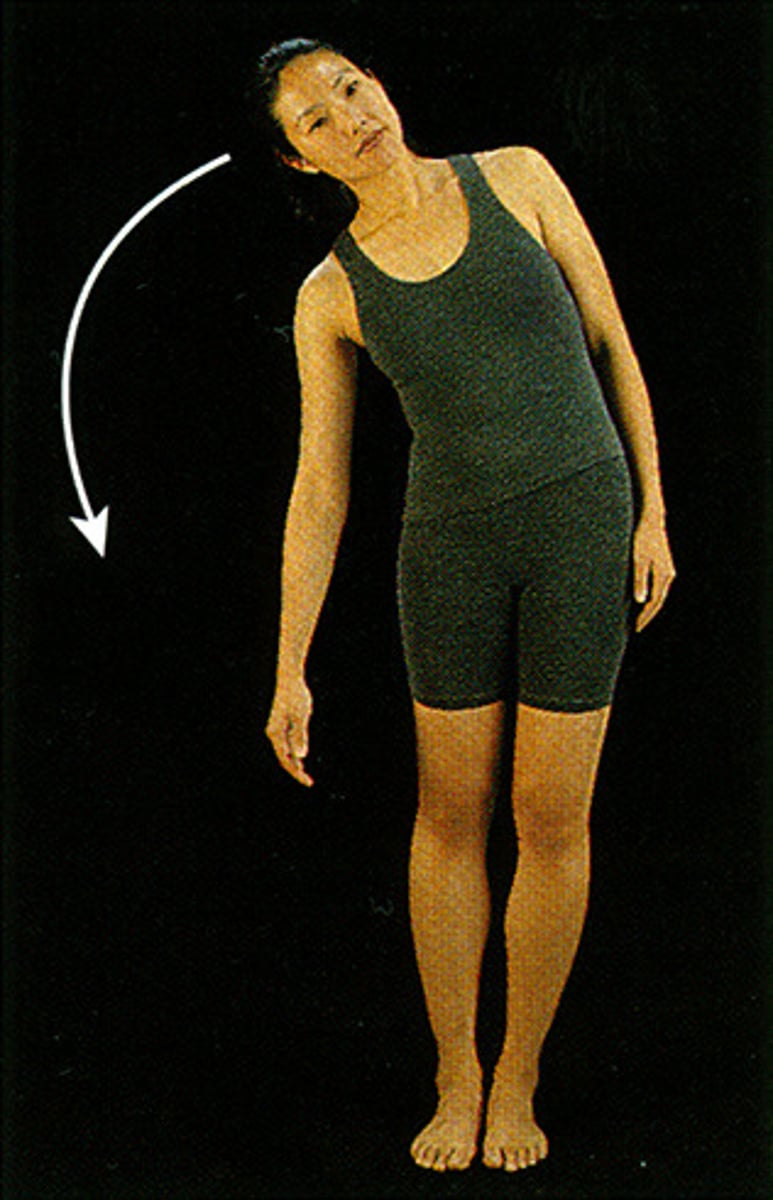
Right/Left Rotation
Movement in the horizontal plane about a vertical axis turning the head or trunk from left or right about that axis
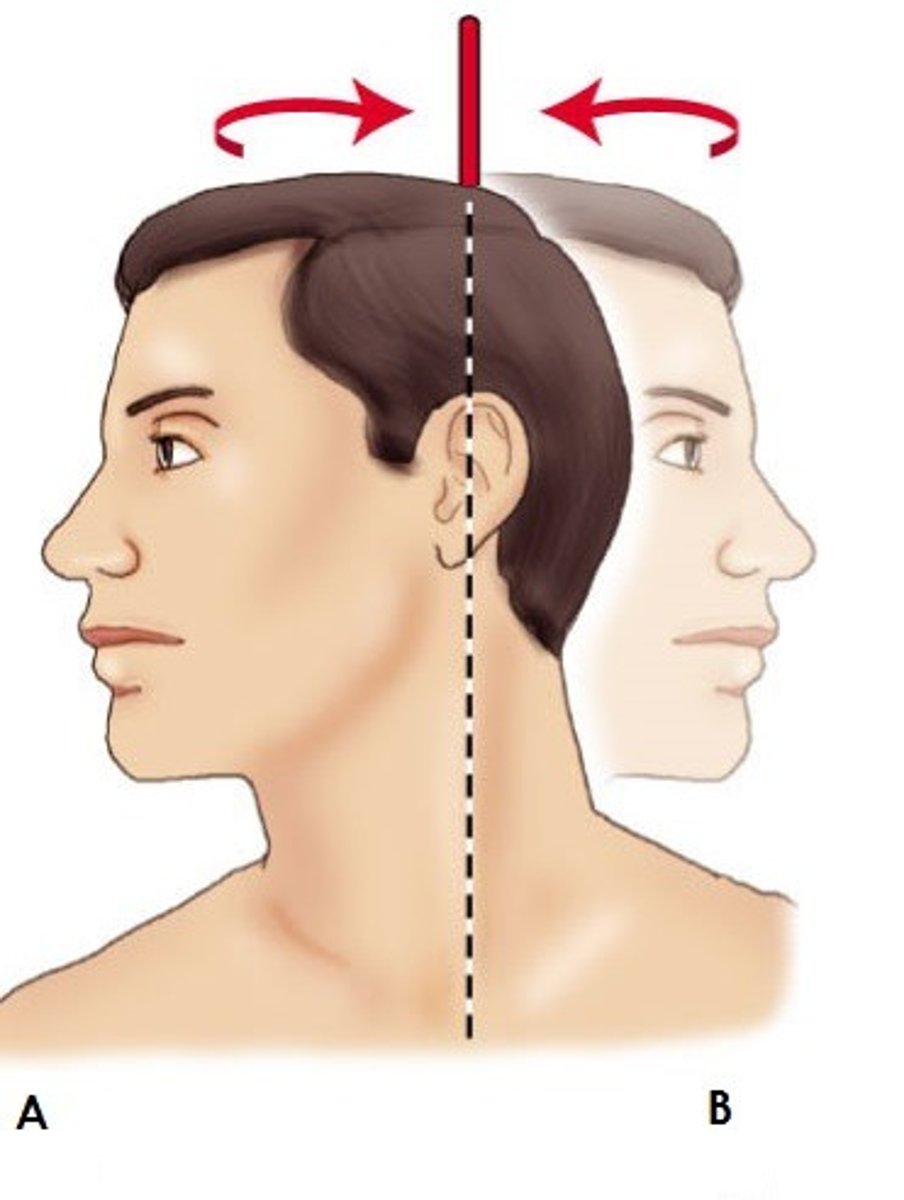
Pronation
Movement in a horizontal plane about a vertical axis so that there's medial rotation of the radio-ulnar joint.
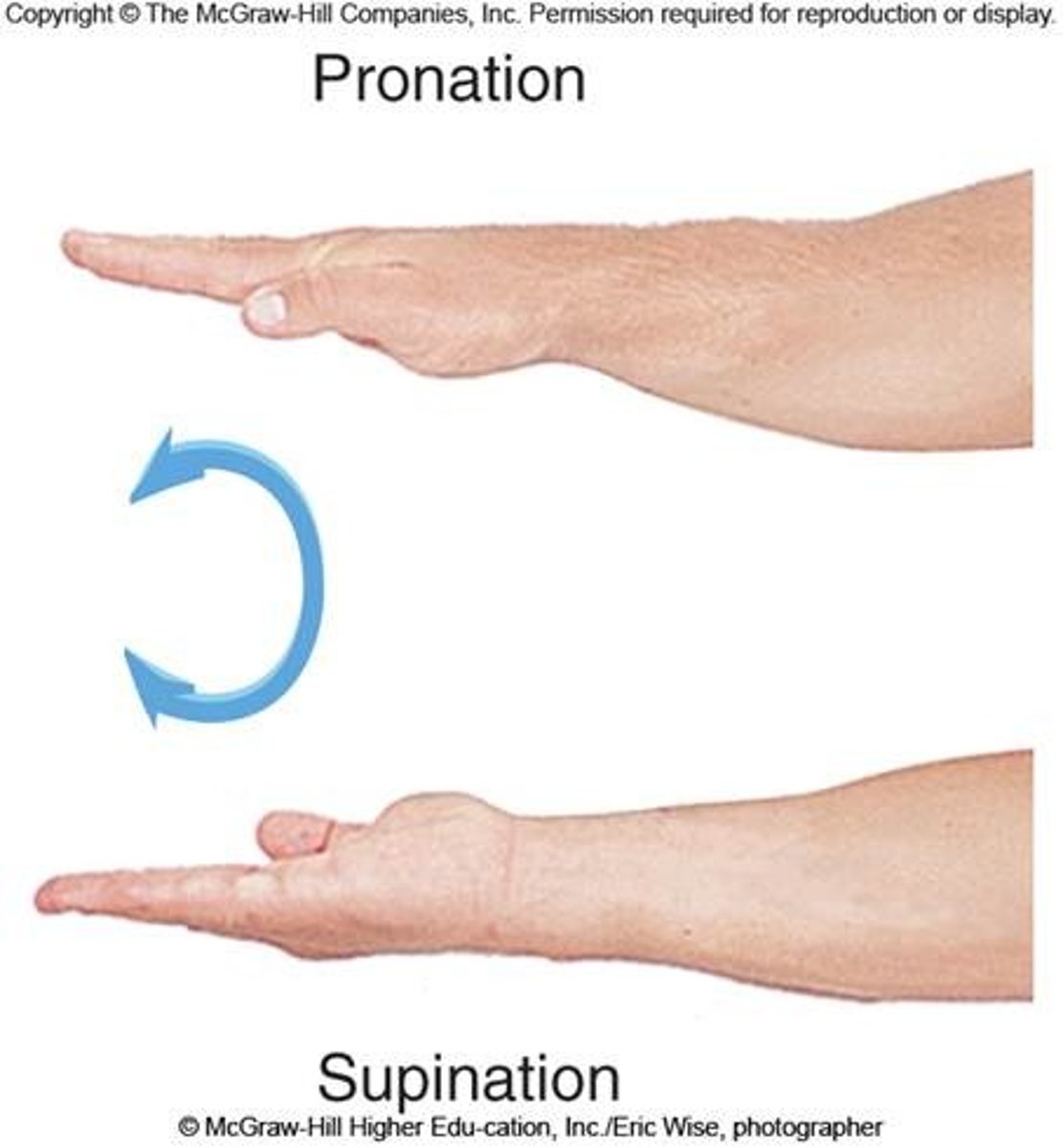
Supination
Movement in a horizontal plane about a vertical axis so that there's lateral rotation of the radio-ulnar joint.
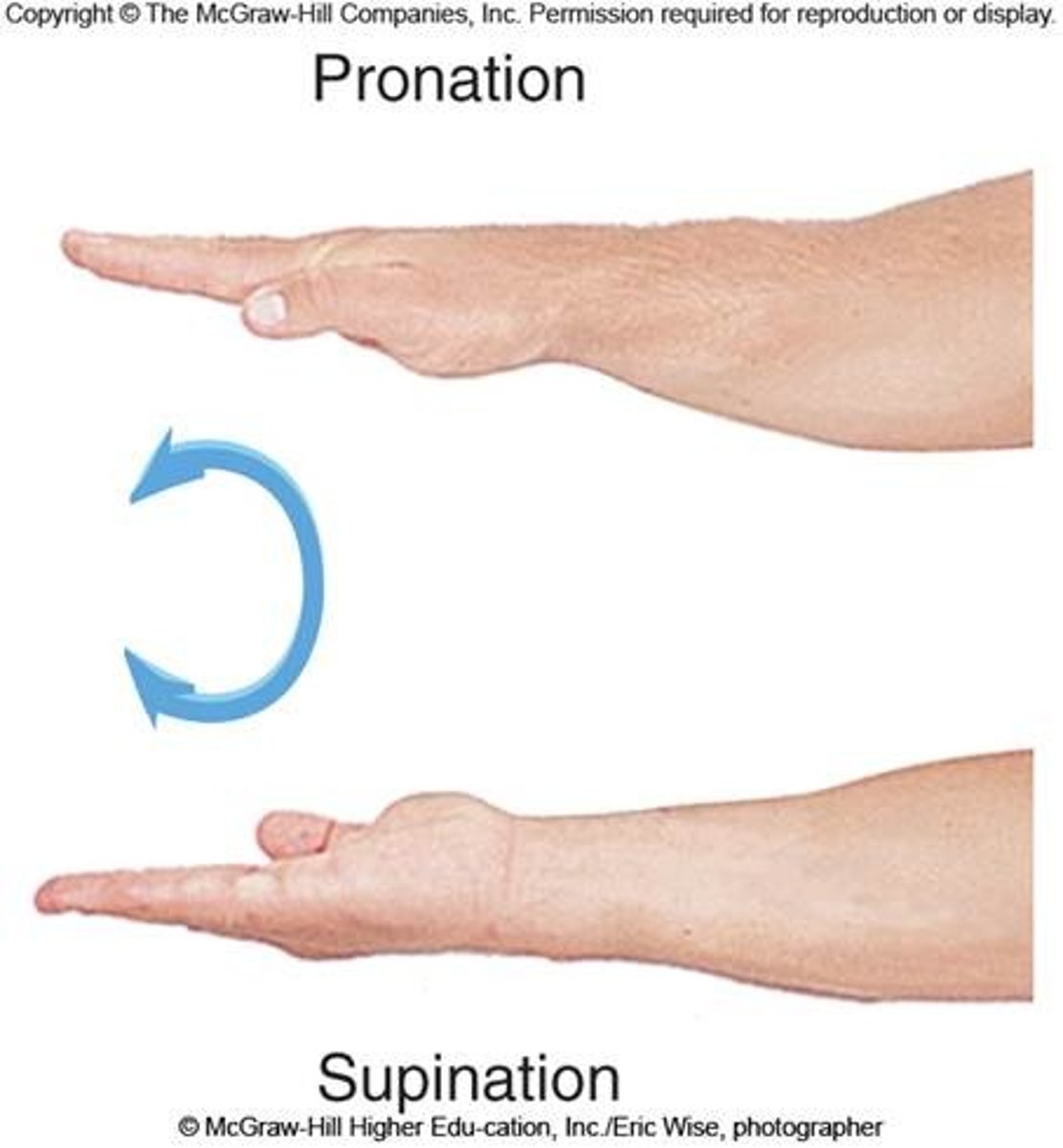
Radial Deviation
Movement in the frontal plane about a sagittal axis so there's movement if the wrist so that the angle between the thumb and the radius decreases
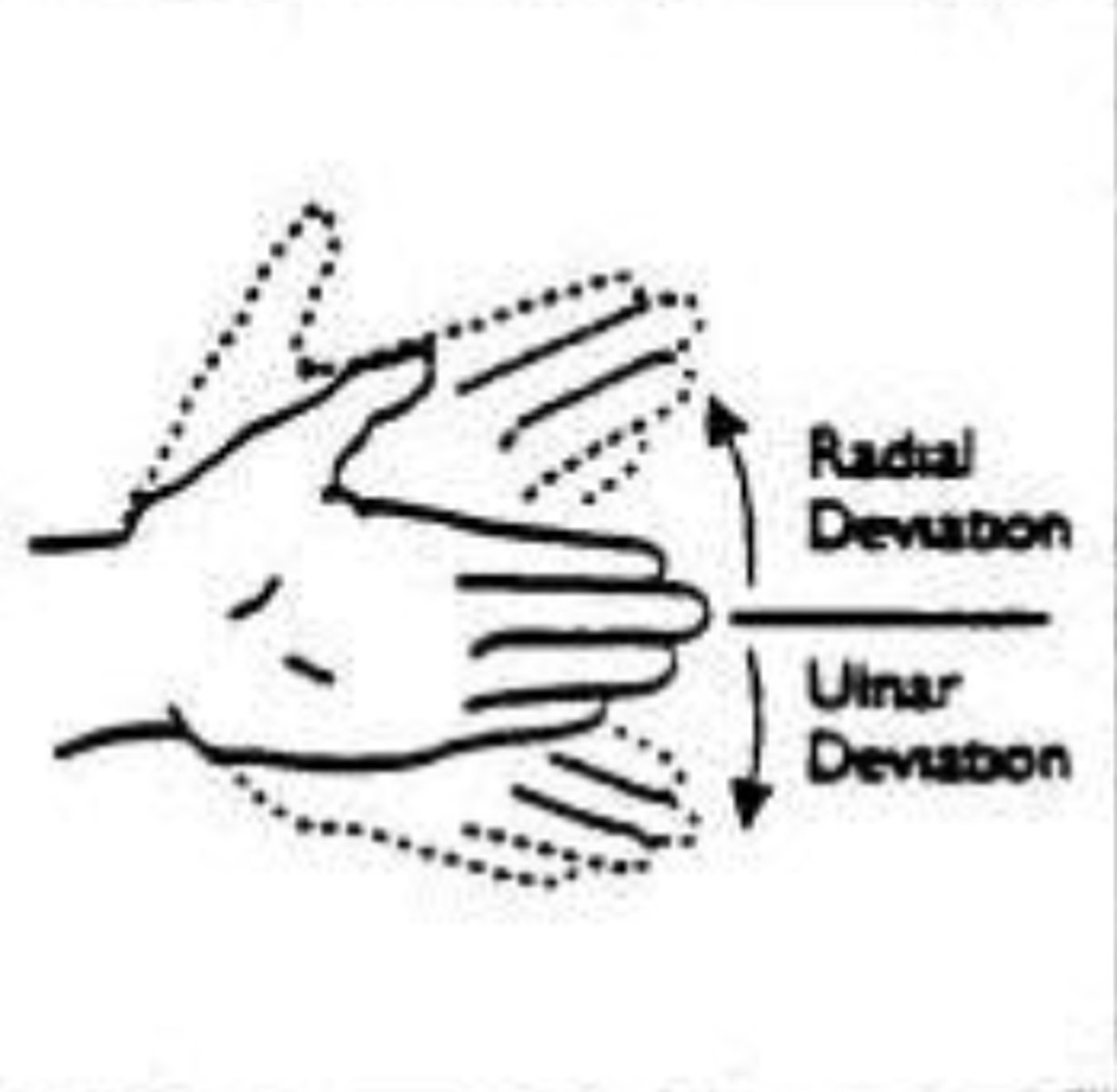
Ulnar Deviation
Movement in the frontal plane about a sagittal axis so that there's movement of the wrist so that the angle between the little finger and the ulna decreases
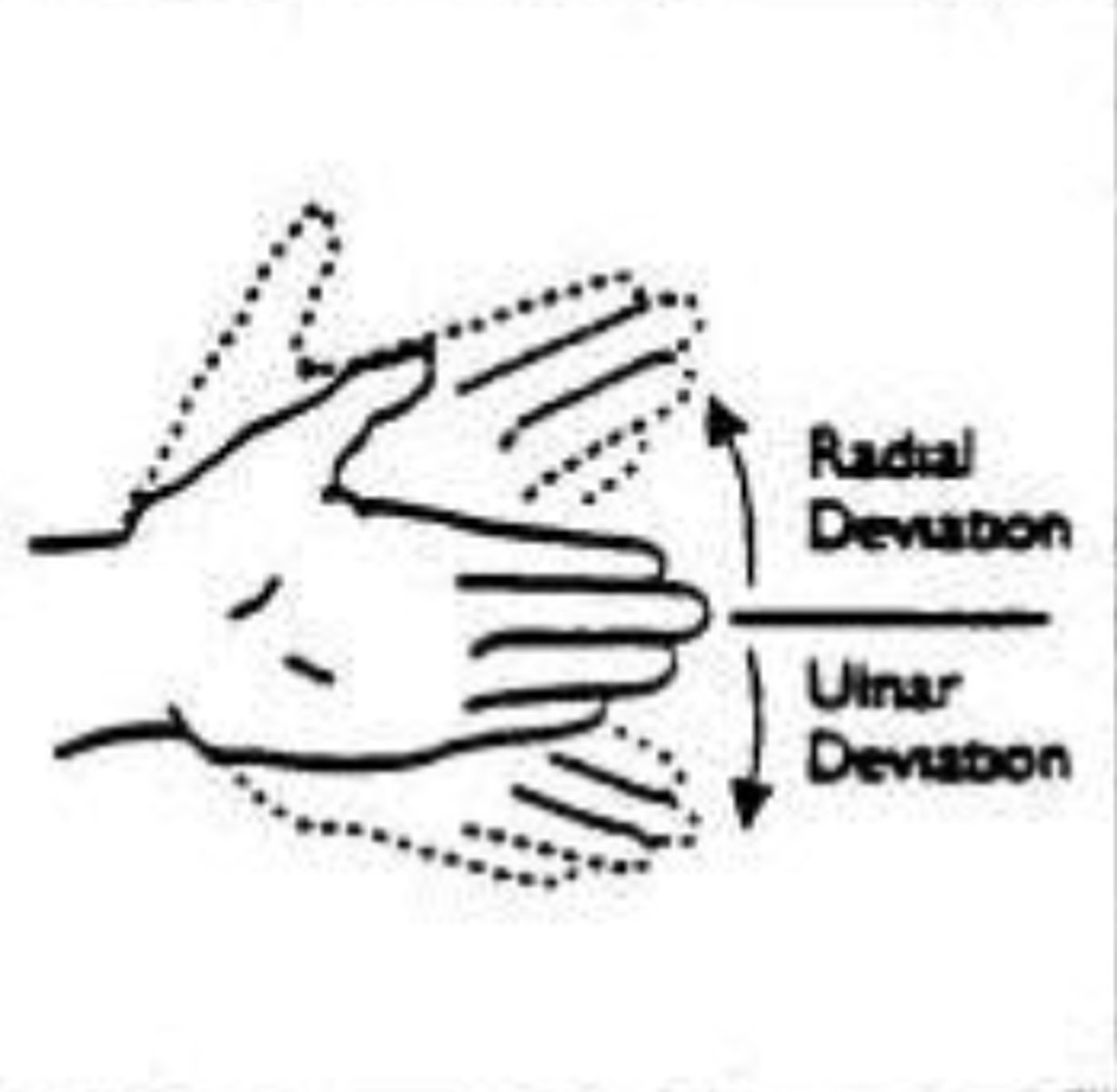
Elevation
Upward movement of the shoulder girdle
Depression
Downward movement of the shoulder girdle
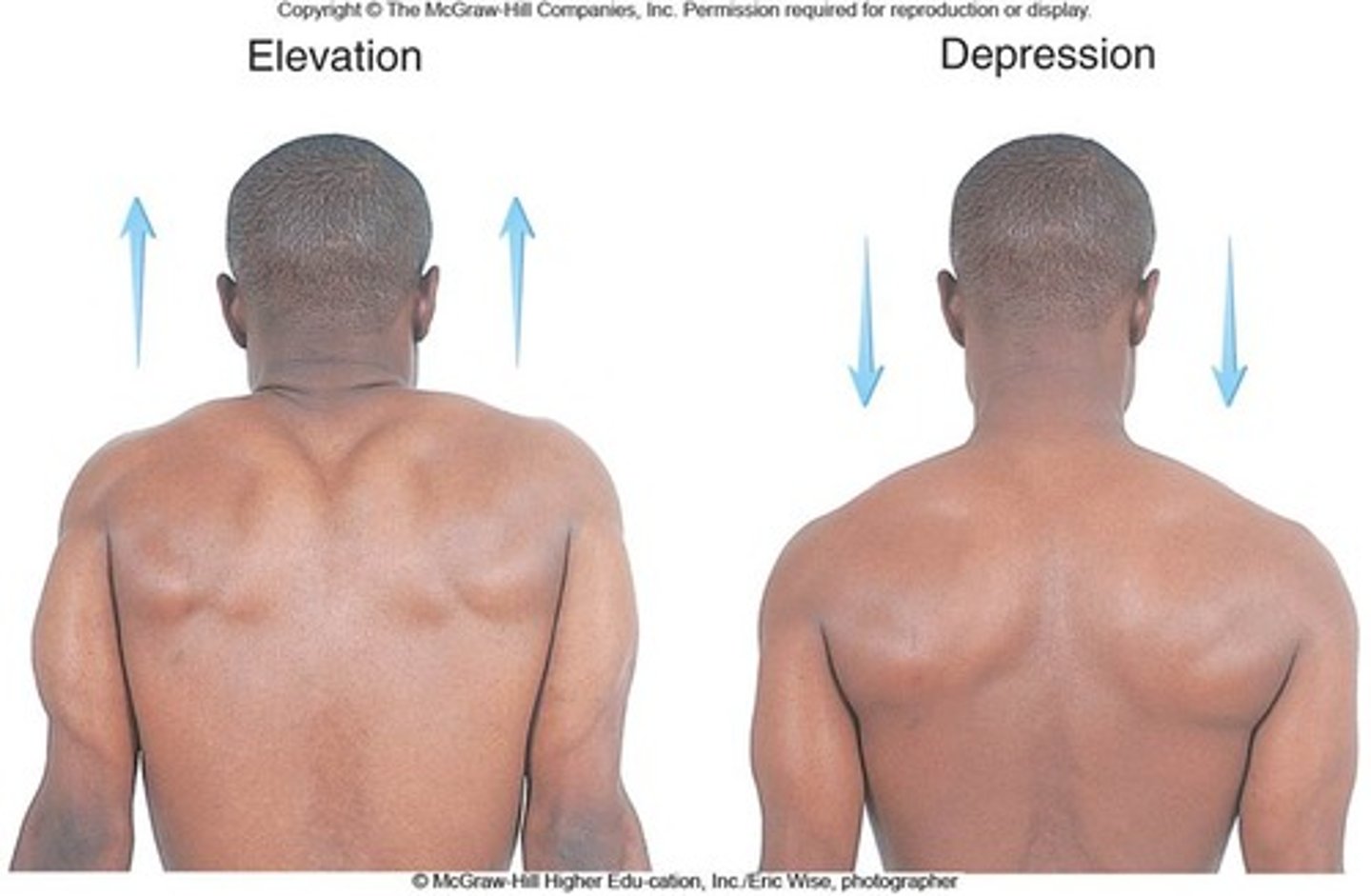
Protraction
Abduction or movement of the scapula laterally; rounding the shoulders
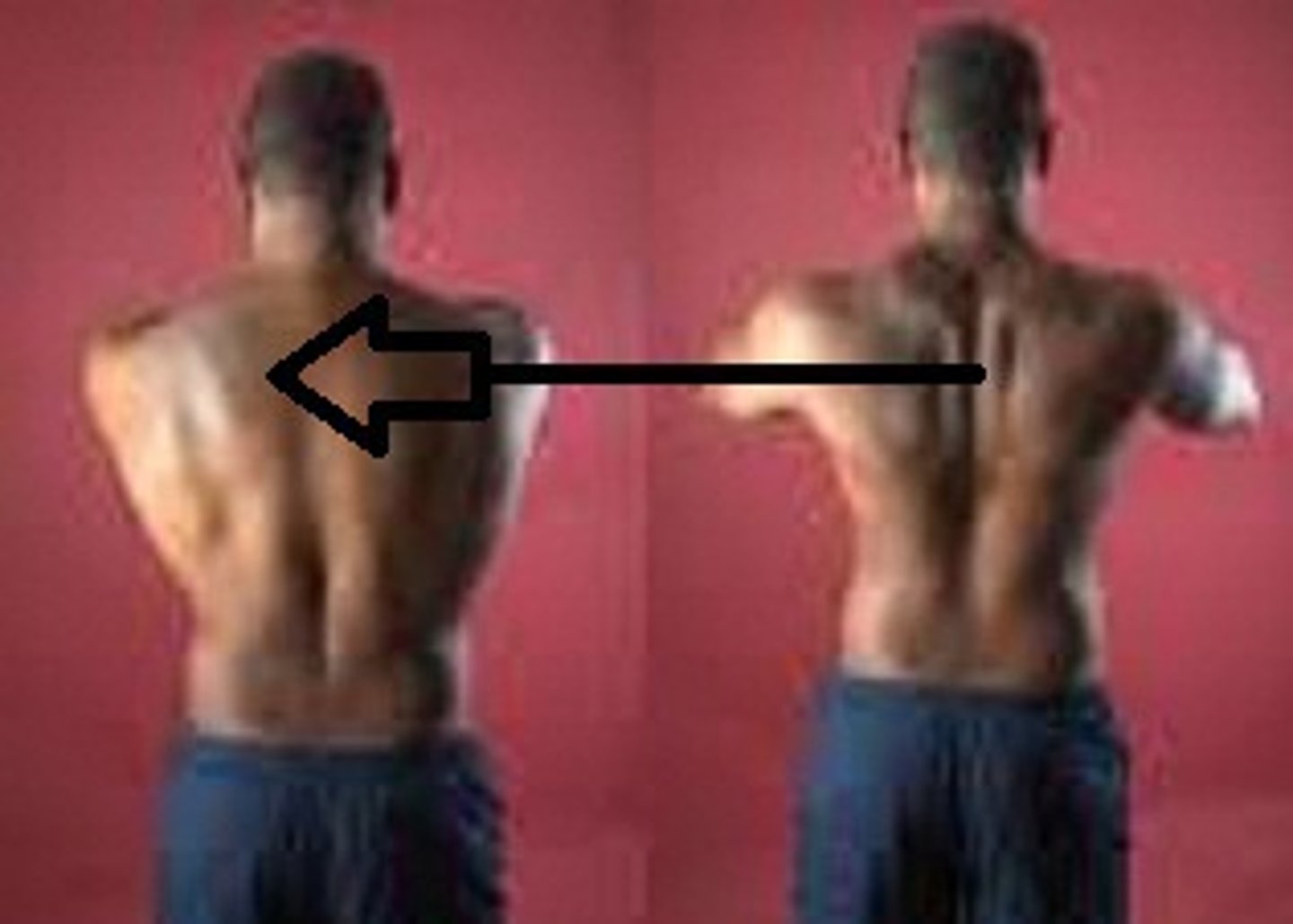
Retraction
Adduction or movement of the scapula medially towards the vertebral columns